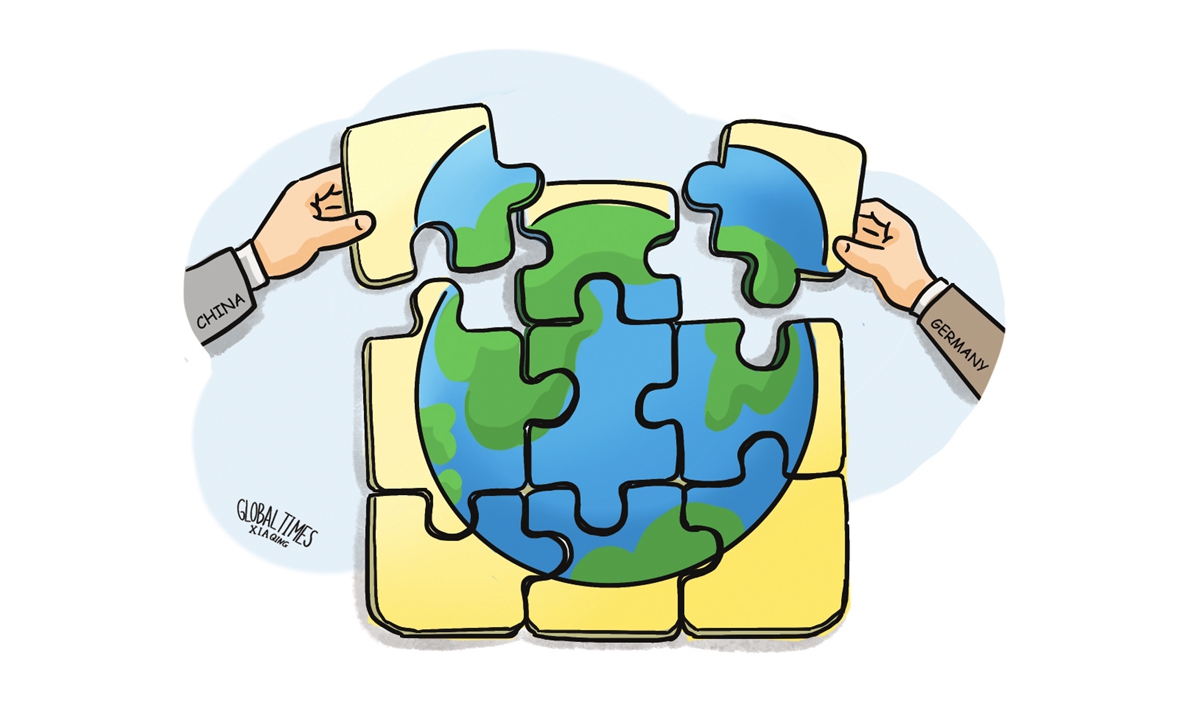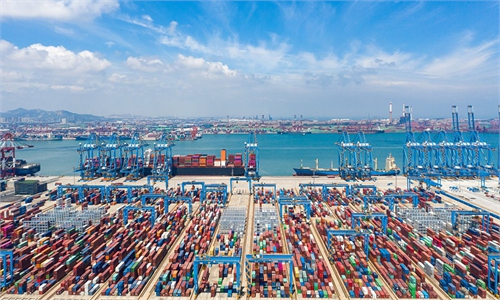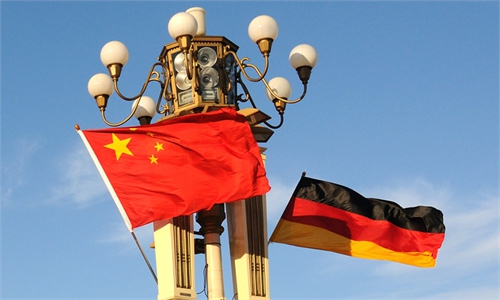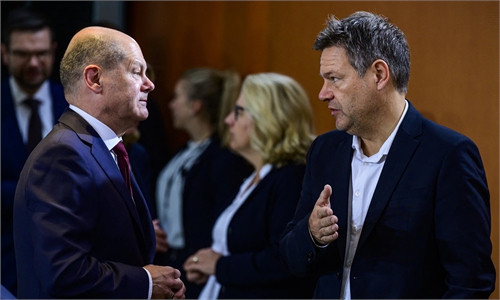
Illustration: Chen Xia/GT
Controversy surrounds the visit of German Chancellor Olaf Scholz to China this week. There are several additional layers of politics impacting this visit. That China and Germany are both partners and competitors is no secret. What some German newspapers and a few politicians would have the public believe is that they are also "strategic rivals." In fact, partnering and competing in international business relations is healthy and the currently robust Germany-China relationship reflects that.Rivalry seems to be in the minds of a few hawks who would happily see the arrival of 1.3 million containers from China every half-year stop. Decoupling from China would surely, as even Deutsche Welle concedes, create further economic woes for Germany.
Germany is besieged by a series of problems. Being a significant part of NATO, it has been obliged to support the war effort in Ukraine on behalf of the US. Being the largest economy of the EU, it has felt the strongest impact from the inflation brought about predominantly by US-led sanctions against Russia. And, having decommissioned its nuclear power plants over the last 20 years, it has found itself short of gas supplies due to two events, one being US Nord Stream II sanctions, the other being the catastrophic sabotage of Nord Stream I and II.
Germany's only solution to this is to find alternate sources which, as US Secretary of State Anthony Blinken pointed out, was a tremendous opportunity for the US, which is currently capitalizing on this. Germany's Minister for Economic Affairs and Climate Action Robert Habeck pointed this out last month when he accused "even friendly countries" of "charging astronomical prices."
German inflation is at a near 50-year high and this will cause interest rates to soar in the coming months. The cost of gas, imported now on ships from the US, is high. Some of the gas, to the chagrin of Western pundits, comes from China but was sold on open tender so allegations of China price gouging are unfair and unfounded. Buyers had choices in the tender process and picked the Chinese shipments as their best option. The higher costs for gas, Germany's main source of energy nowadays, are certain to keep German inflation rates high for the foreseeable future.
Germany could also ask the US, supposedly their allies, for a break. Even for a little less hypocrisy: the US does massive deals with China while suggesting Germany shouldn't get too close. But Germany needs trade, it needs better gas prices, and it shouldn't need the US' permission to do business in or with China. After all, just one year ago, US company Venture Global signed the world's largest LNG deal with China. German businesses have long invested in China. As recently as July 20 this year, BASF announced a $10 billion investment in Guangdong's Zhanjiang to build a huge chemical plant. This large investment wasn't a singular one-off event. In the first half of 2022, German investment in China hit a record high. German banks, automakers, pharmaceutical firms and technology manufacturers are all finding China a suitable place to do business.
Just last week, media reports said that Scholz, to the disappointment of his coalition political party, the Greens, had approved a deal to allow China's Cosco to take a share of Hamburg's Port. Many European and American headlines decried this too but they're not informing their readers and viewers of three important factors. One is that Cosco will only take a minor, not controlling share. Cosco had hoped for a 35 percent share but settled for 24.9 percent on the basis that any deal under 25 percent would not require government approval. This means that, despite media assertions that Scholz allowed the deal, he actually had no say in it at all once the decision was made to reduce the stake to 24.9 percent. Another is that Cosco has a strong record of improving services and profitability for the country which is something Germany definitely needs now. Finally, Cosco manages ports all over the world already, including in Greece, the Port of Haifa in Israel, and 570 other ports in 36 countries around the world; that Hamburg has taken this decision is not unique.
Scholz isn't coming to China with the CEOs of massive German companies to lecture China on its relationship with Europe. He's one of the few European leaders who recognizes the need and has the courage to face up to the reality. China is a reliable partner in trade, and they have been friends in the past and might just prove to be friends again in the future.
The author is a British-Australian freelance writer who has studied cross-cultural management in China and has lived in the country for 17 years, traveling extensively. opinion@globaltimes.com.cn



